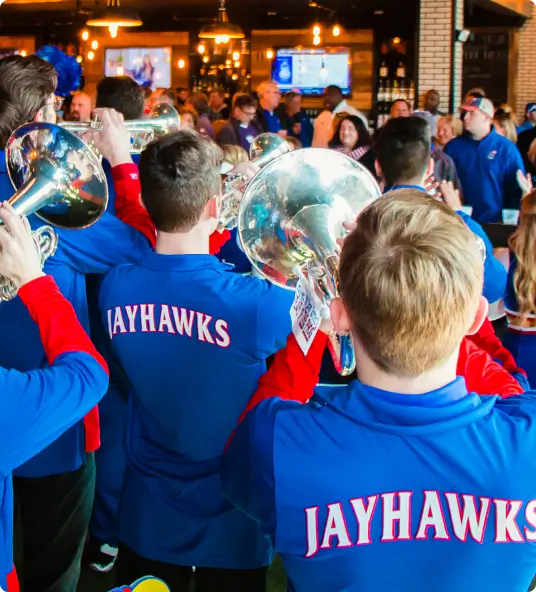Jayhawks in leadership positions are everywhere you look, including through the Jayhawk Career Network. KU Alumni, in partnership with SumnerOne, is highlighting Jayhawk leaders who are models for others in their industries with our “Copy the Leader” program.
What do you do in your work?
I work as a statistician in the Judicial Statistics Unit of the U.S. Department of Justice’s (DOJ) Bureau of Justice Statistics (BJS). As DOJ’s principal statistical agency, our mission is to collect, analyze, publish, and disseminate information on crime, victims of crime, and the operations of justice systems. We are best known for our National Crime Victimization Survey, but we also have teams of researchers that focus on topics relating to law enforcement, courts, corrections and special topic areas, such as recidivism and tribal justice systems. My primary duty is researching the judicial system and distributing findings to policymakers, stakeholders, and the general public.
Prior to joining BJS, I was a senior research analyst for the Kansas Sentencing Commission and served as the state’s Statistical Analysis Center director. Before then, my pursuit of higher education took me to every major university in Kansas! I earned my undergraduate degree in applied behavior science with a concentration in juvenile justice from the University of Kansas (KU). While at KU, I was a member of the track and field team and a Ronald McNair Scholar. After KU, I obtained a master’s degree in criminal justice from Wichita State University, where I completed my collegiate eligibility as a member of the track and field team. Finally, I obtained a Ph.D. in sociology, with an emphasis in criminology from Kansas State University (once a Jayhawk, always a Jayhawk, right?).
What are the qualities of a good leader?
A good leader must be able to lead by example and have the ability to teach others. Thus, they must be a master of their trade and possess the ability to teach others to do the same. In teaching, they should be patient and allow room for others to learn in their own way. It’s important for people to develop their own skills, so a good leader simply fosters that process. Additionally, a good leader must be patient and remember the long path it took for them to master their own skill. Lastly, a good leader must be willing to continually learn.
How do you practice leadership at your job?
The first time I was called upon to be a leader was when I was nominated as a team captain of the KU track team my senior year. In that role, I developed leadership skills that I still use today. Some of those skills include being vocal and taking initiative, while also being a good listener. In my current position, I practice leadership in the role of project manager for several national court studies. I am responsible for overseeing federal awards on various DOJ research initiatives, from the early stages of formulating ideas to publishing the findings. My leadership skills come into play when managing the project team composed of government and non-government employees. It’s my job to ensure that the project operates under predetermined deadlines, stays within budget, and produces findings that meet government standards.
What makes a team or group successful?
Success is not always measured in an outcome; rather, it can simply be a product of the journey. Much can be learned when several likeminded people work together toward a common goal. Some of my fondest memories of college are going through the daily grind with teammates, classmates, and friends. Whether it was running a personal record, the team placing high at the conference meet, or simply surviving a hard class with the help of student study groups, the task was always accomplished by a group of people coming together to work as one. The same is true for working professionals. Organizations have quarterly objectives, semi-annual benchmarks, year-end goals, etc. Although it is important to meet those goals, I think true success is measured by how your team comes together to put their best foot forward as a unit during the process.
How can leaders in your industry help their organizations adapt to change?
I think leaders can help their organizations adapt to change by being willing to change with the current times. In my industry, there have been major improvements in how information is distributed. The days of solely relying on books in library stacks or large online reports to obtain criminal justice statistics are over. Technological advancements such as interactive online dashboards are starting to become a common way for data to be disseminated. My agency has adapted to this change by creating several dashboards, including the recently released Federal Criminal Case Processing Statistics tool, which I oversee. It is a public-facing interactive data dashboard that permits users to review data from various federal criminal justice agencies. Taking measures like this ensures that organizations continue to thrive in an evolving world.
Want to receive alumni and career stories like this in your inbox? Subscribe to the Water Cooler, a monthly career newsletter for alumni, students and friends. It includes upcoming events, featured mentors, stories about alumni and students, jobs and more.




